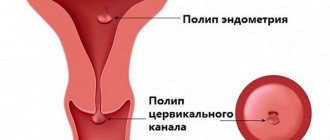Not a panacea, but effective
Many articles have been written about immunomodulators, but Wobenzym, according to some doctors, stands out from similar drugs with maximum safety - it is prescribed even in the early stages of pregnancy in cases where the use of an immunomodulator is not just desirable, but vital for the pregnant woman.
Many doctors who have experience using Wobenzym for pregnant women consider the drug an excellent adjuvant for women who experience serious problems when carrying a baby: a tendency to colds and viral diseases, excessive weakening of the immune system (these two phenomena are interrelated), gestosis, swelling, the threat of spontaneous pregnancy. termination of pregnancy.
The spectrum is so wide that it is difficult to believe in the effectiveness of the drug in eliminating such different diseases and symptoms. Therefore, pregnant women treat medical prescriptions with some fear and mistrust. In order not to doom yourself to senseless worry, we recommend that expectant mothers visit only experienced doctors who know what they are doing when prescribing the drug, listen to their own body and get as much information as possible about the drug of interest.
Indications for use of the drug
As a rule, Wobenzym is used for complex therapy of the following conditions:
- nephrological disorders: cystitis and pyelonephritis;
- vascular pathologies: atherosclerosis, thrombophlebitis, lymphatic edema, obliterating endarteritis, anti-relapse treatment of phlebitis;
- diseases of cardiorheumatology: arthritis, angina pectoris;
- pulmonary diseases: bronchitis and pneumonia;
- dermatological pathologies: atopic dermatitis, acne;
- gastroenterological ailments: hepatitis or pancreatitis;
- gynecological diseases: adnexitis, mastopathy, chronic infectious diseases of the genital organs;
- endocrinological disorders: autoimmune thyroiditis, diabetic angiopathy;
- trauma pathologies, such as injuries and bruises, ligament damage and fractures, burns, inflammation of soft tissues;
- sexually transmitted infections.
The medication is also prescribed in the postoperative period to prevent the formation of adhesive disease.
The advisability of prescribing Wobenzym during pregnancy
It would be wrong to consider Wobenzym solely from the point of view of its effectiveness. For pregnant women, it is important to know all the nuances, because in their situation it is also better not to take immunomodulators, and if taken, do so with extreme caution and taking into account the fact that the drug can act both in the direction of increasing immunity and in the direction of decreasing it.
The second option may turn out to be too dangerous for the expectant mother, who already cannot boast of the strength of her body’s defense system.
When prescribing, the doctor should pay special attention to the possible reaction of the body. Experienced doctors can even predict it.
During pregnancy, a woman faces several troubles characteristic of the gestation period:
- susceptibility to viral and bacterial infections;
- the occurrence of toxicosis and gestosis;
- exacerbation of chronic diseases.
When diagnosing a particular disease, the doctor can absolutely fearlessly prescribe Wobenzym to the patient if he considers the situation critical.
The drug is also prescribed for complex therapy with antibacterial agents, since the effect of enhancing the action of antibiotics with Wobensin and at the same time mitigating their side effects on the body has been observed.
It is possible that the immunomodulatory Wobenzym will be prescribed to a pregnant woman with:
- dysfunctions of the cardiovascular or respiratory systems;
- high blood pressure;
- cystitis;
- rheumatism.
The duration of pregnancy in this case does not matter, only the condition of the pregnant woman and the degree of benefit for her from using the drug are important. And, of course, the doctor will definitely take into account the possibility of risk to the fetus.
Information about the drug
Wobenzym is a combination drug with a very wide spectrum of action. The list of diseases for which the use of this remedy is indicated is huge.
It has analgesic, anti-inflammatory, antiviral, immunomodulatory, and anti-edematous effects.
Composition of the medicine
The medicine contains a complex of enzymes of animal and plant origin: amylase, pancreatin, chymotrypsin, papain, trypsin, bromelain, lipase.
These enzymes are catalysts for chemical processes in the body, having a beneficial effect on the functioning of all organs and systems.
Rutoside, which is part of the drug, reduces inflammation, relieves swelling, and also affects the walls of blood vessels and capillaries, strengthening them.
Indications for use
Most often, Wobenzym is prescribed for the development of gestosis in pregnant women. This complication can be caused by disruption of various organs.
In addition, the drug is used as part of the complex treatment of gynecological diseases : mycoplasmosis, chlamydia, ureaplasmosis, colpitis, vulvovaginitis, endometritis, cervicitis, salpingitis, salpingoophoritis, urethritis.
This remedy is also prescribed for rheumatism, cystitis, varicose veins, threatened miscarriage and many other diseases.
Positive effects on the body
When using Wobenzym, there is an improvement in the functioning of all body systems. In particular, the drug eliminates symptoms of gestosis , such as swelling of the hands and feet, high blood pressure, nausea, and protein in the urine.
It normalizes blood flow, restores the functioning of the respiratory, digestive, and cardiovascular systems. Promotes the extinction of inflammatory processes , shortens the duration of the disease, reduces the risk of complications, preventing the acute disease from becoming chronic.
It has excellent antiviral, antimicrobial and analgesic effects.
When prescribing antibiotics to a pregnant woman, the combined use of Wobenzym not only enhances the effect of antibiotics, but also reduces their side effects.
This drug has another property: it is used as an immunomodulatory agent. During pregnancy, the body becomes vulnerable and is not able to withstand adverse environmental conditions as before.
Wobenzym helps strengthen the immune system and helps the body fight infections; This is especially true during infectious epidemics.
Wobenzym is not addictive , does not reduce the production of the body’s own enzymes, and is compatible with other medications.
Honest summary
Most pregnant women follow the instructions when using medications. But the information provided there is too little to draw an objective conclusion. Therefore, medical consultation is mandatory.
The second point is that manufacturers, in order to relieve themselves of responsibility and sell as much product as possible, describe the use of Wobenzym during pregnancy either too vaguely or too categorically. There is simply no way for a pregnant woman to understand the true effects of the drug on her “unusual” body: full-scale (taking into account the characteristics of pregnancy) studies of such drugs are not carried out, and, therefore, one cannot expect a crystal-clear summary from any manufacturer.
Analogs
There are no products that have the same composition as Wobenzym in pharmacies, so the selection of an analogue should be carried out by a doctor, taking into account the diagnosis and the expected result. If the reason to prescribe the medication was to obtain an immunostimulating effect, the specialist can replace the tablets with drugs such as Grippferon or Viferon. They affect the immune system due to interferon, therefore they are especially in demand for viral infections or a high risk of their development. However, such products have some restrictions for use during pregnancy, so you should not use them without a doctor’s prescription.
It is well known that pregnant women need to choose medications very carefully, since many substances can penetrate the placenta and affect the fetus. It is especially important to avoid taking medications in the early stages, when the placental barrier has not yet formed. Let's figure out in what cases Wobenzym is prescribed during pregnancy and whether taking this drug will cause harm.
Of course, it would be ideal if during pregnancy the expectant mother did not get sick and felt great. But this does not always happen, unfortunately. Health can fail, and then you cannot do without medication.
When treating expectant mothers, it is usually recommended to use drugs that are prescribed to children under three years of age. However, it is not always possible to get by exclusively with “children’s” medications; sometimes the expectant mother needs more serious medications.
What did the researchers notice?
But there have been studies, and based on their results, some conclusions can be drawn about the safety (danger) of Wobenzym for pregnant women.
Experts have concluded that enzyme therapy, in particular the drug Wobenzym, is highly effective for use in urology, obstetrics and gynecology, traumatology and phlebology, pulmonology and rheumatology, as well as in sports medicine.
Based on these findings, attending physicians carefully prescribe Wobenzym for varicose veins (a very common disease in pregnant women), swelling of the extremities, and as a general tonic and prophylactic agent.
When planning and frozen pregnancy
Wobenzym is often prescribed for frozen pregnancy. It has an immunostimulating and restorative effect, helping to cope with miscarriage.
It is recommended to take the medicine when planning pregnancy in order to strengthen the immune system. As you know, expectant mothers experience a physiological decrease. Therefore, in order to prevent the risk of frequent viral diseases in the future, it is worth taking care of this in advance. Pregnancy after Wobenzym is only for the better. After all, the drug has a general strengthening effect, normalizes blood pressure, eliminates hormonal imbalances, and improves digestion.
Composition and pharmacokinetics
For a clearer understanding of the drug for pregnant patients, it should be noted that in many Western countries Wobenzym is registered as a dietary supplement (dietary supplement), is not included in the list of drugs, and its distribution in the pharmacy chain is prohibited.
What does an immunomodulator consist of if it has fallen out of favor with regulatory authorities?
In pharmacology, Wobenzym is designated as a set of enzymes of plant and animal origin with the addition of rutoside.
If everything is more or less clear with enzymes (the main one is papain , a papaya enzyme), then rutoside is a not very well-known substance, by the way, if you see instructions for Rutoside as a separate drug, please note that in the first trimester of pregnancy its use is prohibited .
After entering the body, enzymes are absorbed in the small intestine, and those that are not absorbed take part in the digestive process. The maximum concentration of the substance in the blood occurs two hours after application and is stable for 4 hours.
The half-life is 8 hours. 10% of enzymes are excreted in urine, 45% in feces.
How to take Wobenzym during pregnancy
Not on your own – that’s the first thing. Self-medication during pregnancy is unacceptable.
And even with medical supervision, be very careful, this is the second thing.
The doctor prescribes the drug on an individual basis, taking into account the severity of the disorder, as well as its stage, and, of course, having studied the patient’s clinical picture in detail.
It is advisable not to use the drug in very early stages of pregnancy.
With a common dosage regimen: 3 tablets three times a day; for a pregnant woman, the doctor may make adjustments to the usual dosage. As a rule, pregnant women are prescribed a reduced dose - it can be two tablets per day, or the course of therapy is shortened.
Take the drug half an hour before meals with plenty of water.
Instructions for use
It is worth mentioning once again that, despite the safety of Wobenzym for the fetus, pregnant women are allowed to take such tablets only as prescribed by a specialist and after passing the necessary tests. It is recommended to swallow Wobenzym approximately 30-40 minutes before meals. To take the tablets, you should use plenty of water.
The dosage regimen, single dosage and duration of therapy are determined individually. Usually the medicine is taken three times, and a single dose can be from 3 to 10 tablets, depending on the activity of the pathological process. If the medication is prescribed for prevention or the inflammation is weak, the drug is taken 3 tablets, with antibiotic therapy or a moderately active course of the disease - 5 tablets per dose, with a very active inflammatory process - 7-10 tablets at a time.
Wobenzym: two sides of one tablet
Despite a lot of positive reviews about the drug from women who took Wobenzym and successfully carried and gave birth to completely healthy children, there is another category of pregnant women. There are significantly fewer of them, but their opinion cannot be ignored and their bitter experience cannot be ignored.
In some pregnant women, during the period of using Wobenzym, not only do no improvements occur, but on the contrary, the situation only gets worse, severe allergic reactions occur, and their condition worsens.
It all depends on the individual characteristics of the pregnant woman’s body, and only a very experienced doctor with many years of practice can predict her reaction to the drug in advance.
To prevent you from encountering this unsightly and dangerous side of Wobenzym therapy, there is only one recipe: strengthen your immune system before pregnancy, and during pregnancy, maintain the acquired result through a properly balanced diet and leading a moderately active lifestyle.
Wobenzym and pregnancy
The advisability of prescribing Wobenzym during pregnancy may have several reasons. Firstly, a woman’s immunity may weaken excessively, and over a certain period of time this poses a real threat to her and the child’s health. Secondly, under the influence of hormones, a number of changes occur in the pregnant woman’s body and not always desirable processes occur. Many organs and systems may be noticeably damaged. Wobenzym will also help here. It improves the functioning of the respiratory, cardiovascular, immune, circulatory, and digestive systems, which often malfunction during pregnancy, which can negatively affect not only the well-being and health of the expectant mother, but also the condition and development of the unborn child.
Wobenzym by trimester
1st trimester
It is alarming that doctors do not express any restrictions associated with early gestation. Meanwhile, the drug contains a substance (rutoside), the use of which is prohibited in the early stages of pregnancy.
To be completely sure of the safety of your baby, avoid using Wobenzym in the first months of pregnancy. Do not hesitate to share your doubts with your doctor, he will help you choose a safer drug.
2nd trimester
Given the relative safety of the period for using medications, it is wiser to be careful, not self-medicate, and ask the doctor to reduce the dose.
Is it possible to take Wobenzym in early pregnancy?
Both in the first trimester and in later stages of pregnancy, the use of this drug is possible, but the decision on the advisability of such therapy should be made by the doctor after assessing all the risks and likely benefits. At any time, care must be taken when carrying out Wobenzym therapy. But, according to the instructions, it is recommended for pregnant women to take the drug as a prevention of miscarriage, starting only from the second trimester.
The manufacturer does not hide the fact that no studies have been conducted on the possible penetration of the drug into breast milk. But the instructions for Wobenzym clearly indicate that the active substances penetrate into the general systemic bloodstream, that is, along with the bloodstream they also reach the fetus. And these tablets contain, among other things, crimson dye E124 (or ponceau 4 R), which can cause the development of cancer cells and severe allergic reactions, including anaphylactic shock, and for this reason it is prohibited for use in the food and pharmaceutical industries in a number countries of the world (in particular in the USA, Norway, Finland).










